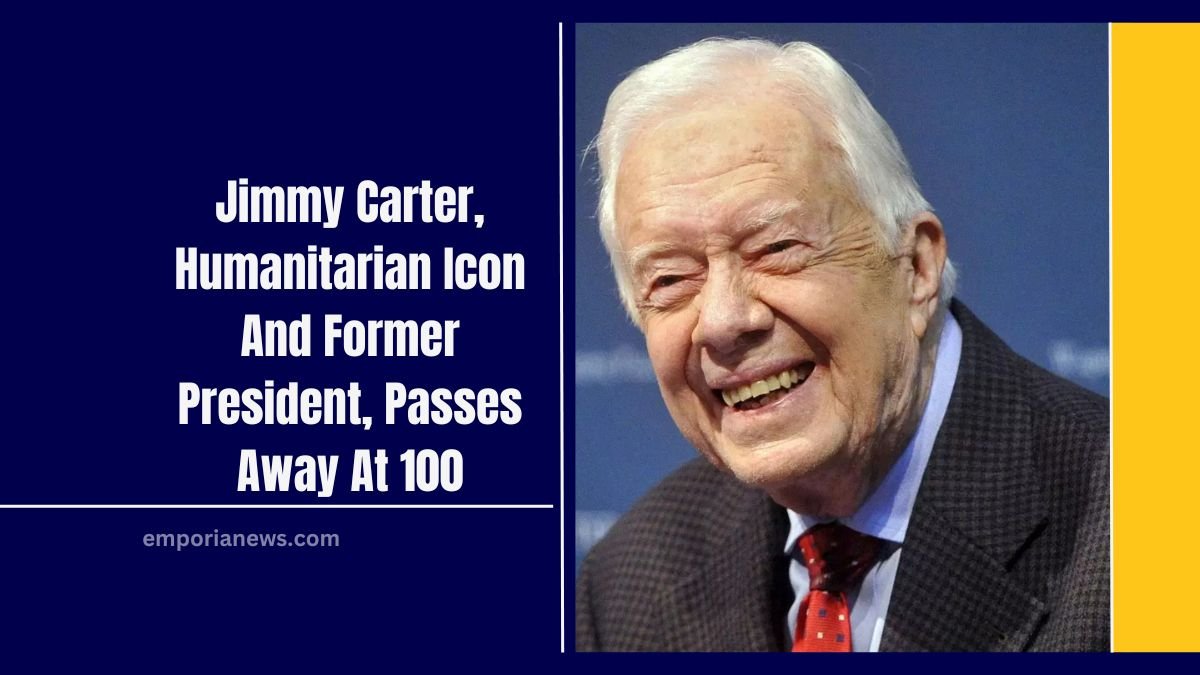Jimmy Carter, the 39th President of the United States, has left an indelible legacy, both as a leader during turbulent times and as a global humanitarian.
Carter passed away at the age of 100, following a life marked by significant achievements, profound challenges, and a tireless commitment to making the world a better place.
A Presidency Marked by Turmoil and Historic Achievements
Born on October 1, 1924, in Plains, Georgia, Jimmy Carter was a peanut farmer turned politician who rose to prominence as a fresh face in Washington, untainted by scandals like Watergate. In 1976, Carter’s promise of honesty and reform earned him the presidency.
However, his administration faced numerous challenges:
- The Iran hostage crisis saw 52 Americans held captive for 444 days, a defining moment that tested his leadership.
- An energy crisis and double-digit inflation marked economic difficulties during his tenure.
- His “malaise speech” in 1979, addressing the nation’s crises, highlighted a fractured public morale.
Despite these issues, Carter achieved significant foreign policy successes, including the Camp David Accords, which brokered peace between Israel and Egypt, and the establishment of diplomatic relations with China.
A Life of Service After the Presidency
Carter’s influence grew significantly after leaving the White House. He established the Carter Center in 1982, focusing on advancing human rights, resolving conflicts, and combating disease worldwide.
His humanitarian work earned him the Nobel Peace Prize in 2002, honoring decades of service to international peace and development.
Highlights of his post-presidential contributions include:
- Working on global health initiatives to combat diseases like Guinea worm and malaria.
- Advocating for free elections and democracy in over 100 countries.
- Building homes with Habitat for Humanity, a commitment he upheld until his 90s.
A Legacy of Faith and Family
Carter’s faith was a cornerstone of his life. He taught Sunday school for decades and often cited his deep Christian values as the foundation of his moral compass.
He and his wife, Rosalynn Carter, shared an extraordinary 77-year marriage, serving as partners in both life and humanitarian efforts.
Key Achievements and Challenges
| Year | Achievement/Challenge | Impact |
|---|---|---|
| 1976 | Elected 39th President of the United States | Represented a shift toward honesty and reform after Watergate. |
| 1978 | Camp David Accords | Established peace between Israel and Egypt. |
| 1979 | Energy Crisis and Iran Hostage Crisis | Tested Carter’s leadership and public support. |
| 1982 | Founded the Carter Center | Advanced global human rights and health initiatives. |
| 2002 | Awarded Nobel Peace Prize | Recognized for decades of humanitarian efforts. |
| 2019 | Completed 36th Habitat for Humanity Project | Showcased commitment to service well into his later years. |
Jimmy Carter’s life was a testament to the power of perseverance, faith, and service. From a challenging presidency to decades of humanitarian efforts, he demonstrated that leadership extends far beyond political office. His impact, especially on global peace and human rights, will resonate for generations to come.
Carter’s legacy reminds us that even amid adversity, a life dedicated to compassion and justice can inspire change worldwide.
FAQs
What is Jimmy Carter’s most lasting legacy?
Jimmy Carter’s most enduring legacy lies in his post-presidential humanitarian work, especially through the Carter Center, which continues to champion democracy, human rights, and public health.
How did Carter handle the Iran hostage crisis?
Carter faced immense criticism for his handling of the crisis, which lasted 444 days. The hostages were released minutes after Ronald Reagan’s inauguration in 1981.
How did Carter’s presidency influence his post-White House life?
Carter’s presidency taught him resilience and the value of service, shaping his humanitarian focus and commitment to global issues after leaving office.




